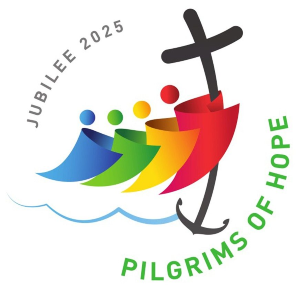Literacy
Overview
The Reading Curriculum intends to inspire our children's imagination and love of literacy and create the readers, actors, poets and, of course, authors of the future. Whilst learning about key writing and reading genres across the curriculum and supporting a greater depth of understanding of these through a variety of well-considered texts, children also learn about the key grammatical features that make up the English language and how they as readers can use these features to develop their reading fluency and expression.
The curriculum has been developed to focus and build on several core areas starting with the Read Write Inc. synthetic phonics programme in Early Years. We start by teaching phonics, using the Read Write Inc. programme, to the children in Nursery and continue in Reception and as needed in Key Stage 1. The children learn how to recognise and read the sounds in words, as well as talking about the texts they have read. They learn the English alphabetic code: the 150+ graphemes that represent 44 speech sounds.
The structure and pace of the lessons allow for the participation of every child, developing their decoding skills, as well as their comprehension and love of reading. Children are exposed to a wide variety of texts throughout their reading journey and have the opportunity to complete a variety of activities which not only develop their ability to read words and sentences when they start to read, but also to understand and analyse what they have read. Alongside the phonics programme, children who start in Reception and KS1 are exposed to a wide variety of stories and texts in class, linked to different areas of learning.
Through teacher-led input and explorative play, our children are taught to sequence, discuss, write and role play stories, as well as other texts linked with their topics throughout the year. Once children progress from the phonics programme, key reading skills are taught through echo reading to develop fluency and expression, prediction, inference, sequence and summarising texts that have been read.
As children progress through the Reading Curriculum, explicit links and connections are made to support children to continually build upon the knowledge and skills they have accumulated in previous year groups. Children use many genres of text to develop their skills here at Our Lady of Grace and are taught the different features of fiction and non-fiction, poetry and a variety of text types.
Children enjoy engaging in story time and reading conversations throughout the school week, actively engaging in discussions centred around authors, genres, preferences and opinions. They have access to the library where they are able to read in comfort and in a relaxed environment to enable that love of reading to develop.
As a school, we enrich our children's love of reading in many different ways. Parents are provided with recommended book lists specific to their year group. Book recommendations feature regularly in the school newsletter.
Each term we have a book fair that allows children to explore even more books, they are the first to read these books, which thrills our children. We also celebrate ‘World Book Day’ so that children get an opportunity to read to others or be read to no matter what age in order to simply enjoy reading.
We have developed links with the Brent Library Service to provide opportunities for children and their families to access libraries beyond the school day .
EYFS
Our children are taught early reading behaviours such as holding the book correctly and handling books. They are encouraged to show enthusiasm about books and pick books they are interested in. The learning environment has a wide variety of books and reading materials for the children to look at, including topic related books. Children are read to during the day and enjoy listening to stories being read and gaining meaning through pictures and words learned. The teaching of phonics through the Read Write Inc. synthetics phonics programme begins in nursery. They learn their set 1, set 2 and set 3 sounds and how to blend sounds together.
KS1
Children continue with the Read Write Inc. synthetic phonics programme where they learn to read accurately and fluently with good comprehension. Alongside this they are read to daily, exposing them to a range of texts and authors and they have an opportunity to choose and read books which are of interest to them. During echo reading and shared reading sessions, children join in with the reading of a text and the teacher explicitly models the skills of proficient readers, including reading with fluency and expression.
Writing
At Our Lady of Grace the Writing Curriculum intends to inspire our children's imagination, love of literacy and create the writers of the future. Whilst learning about key writing genres across the curriculum and supporting a greater depth of understanding of these through a variety of well-considered texts, children also learn about the key grammatical features that make up the English language and how they, as writers, can use these features to develop their writing skills and be able to effectively write for any audience.
The curriculum has been developed to focus and build on several core areas: different genres of text; different writing purpose and audience; handwriting; spelling and grammar; with a careful and consistent progression of skills and knowledge that allows children to make the necessary connections to piece their learning together throughout their learning journey.
As children progress through the Writing Curriculum, explicit links and connections are made to support children to continually build upon the knowledge and skills they have accumulated in previous year groups. The sequence of learning draws from children's initial mark making and the meaning they give to the marks they make. During the EYFS period, children learn synthetic phonics, which enables them to assign greater meaning to the marks they make, being able to write a grapheme at first and eventually moving on to simple sentences in relation to stories that they have learned. In Key Stage 1, these skills are further developed with the introduction of specific grammar lessons to enable pupils to begin their journey of technical proficiency in writing.
A variety of genres and purposes are covered in Key Stage 1 and writing across the curriculum is expected to enable all children to become a strong independent writer in all subjects.
Spelling is also taught as this is a key element to being a great writer; pupils are able to spell the relevant year group spellings. Initially children are taught to segment spoken words into graphemes before moving on to learning more spelling rules and different word families.
EYFS: Children are initially taught early mark making skills and then progress to writing their name, simple sentences and then simple stories. They are taught the skills of sitting correctly to write and how to hold a pencil using the tripod grip.
KS1: Children learn about different genres of writing and their features. They are given the opportunity to write narratives, poems and non- fiction texts such as non-chronological reports and diaries.











